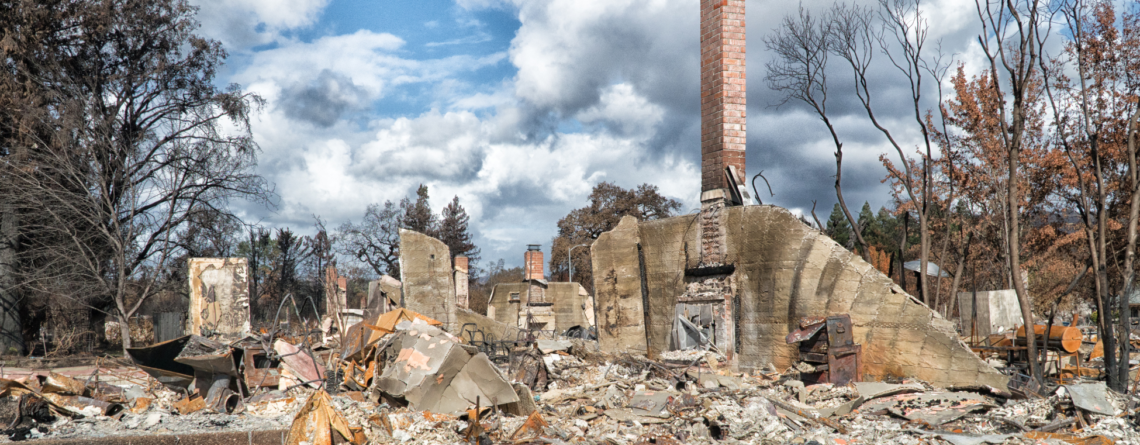LA Fires and Homeowners’ Insurance
As of this writing on January 14, fires in the Los Angeles Basin have destroyed more than 10,000 structures (threatening another 52,000+) and burned more than 48,000 acres—and that’s just the Eaton and Palisades fires. As a result, California Insurance Commissioner Ricardo Lara issued a moratorium preventing insurance companies from canceling or non-renewing homeowner policies in the fire zones.
While I understand the desire to protect people whose lives have been upended by this terrible fire, I think it’s important to recognize that the short-term benefit of protecting fire victims may result in a significant long-term loss for California homeowners.
The combined cost of the fire damage in the LA Basin will amount to billions of dollars. Obviously, this is nothing compared to the catastrophic impact of the loss of life and homes, but the financial cost will have ripple effects.
Like all companies, property insurers are in business to make a profit. The LA fires will likely put some insurers out of business, and the restrictions of doing business in California may drive the remaining insurers out of the state, leaving us with prohibitively expensive insurance that barely covers property damage, to say nothing of liability coverage.
For property insurers to stay in business in California, they must be able to cover their costs and allow for a profit, and their costs just went up dramatically. If they cannot pay claims, they’ll fold. Even if they can pay claims, to remain in business they’ll have to recoup their costs somehow—and consumers won’t like it. Insurers will either raise rates, decrease coverage, or both.
To be clear, I agree that insurance companies should not profiteer from these fires, but nor should they be required to carry the entire cost on their shoulders.
To reduce costs and protect against future risks, insurers can end a policy either during the term of the policy (cancellation) or after the term expires (non-renewal). Be aware that when your insurance agent offers you a policy, that policy must be approved by company underwriters. Individual agents do not have the legal authority to saddle the company with a policy that may not meet specific requirements. Imagine a rogue agent who insures his buddy’s house while it’s on fire. Obviously, some safeguards are wise. It usually takes 30 to 60 days for final policy approval.
Sometimes insurers notify customers that they need to mitigate risks associated with their property if they want to keep their current policy. A couple of years ago, my insurance company didn’t like a tree too close to my house and a fence that needed repairing. They threatened to cancel my policy if I didn’t take care of these things, so I made the changes. Sadly, when policy term ended, they chose not to renew anyway. However, because they did not cancel my policy immediately, I had time to find other coverage.
If you want to maintain a good relationship with your insurer (and keep your policy in place), I recommend reporting any relevant changes to your property. For example, if you put in a pool or complete a room addition, your insurer will want to know.
My concern is that in the aftermath of the LA fires we will see a dramatic reduction in the availability of homeowners insurance statewide. Already, we’re seeing people who live in non-incorporated parts of Mendocino County facing huge rate hikes, including people who live in Ukiah subdivisions like Deerwood Rogina Heights, and those who live in the western hills.
If your policy is cancelled or non-renewed, act immediately. Start by calling your current insurer to see if there’s anything you can do to reinstate your coverage. If not, seek other options. In California, the insurer of last resort is the California Fair Plan. If you’re thinking you’ll just go without insurance and you have a home loan, think again. Lenders require a homeowner’s policy. If you don’t get insurance, the lender will get it for you and you won’t like the cost or the crummy coverage. Like the California Fair Plan, forced-order insurance from the lender is usually limited to casualty loss for the dwelling only, no coverage for your possessions and no liability coverage. And it comes with a hefty price tag.
If you own your home outright and choose to go without insurance (which I don’t recommend), call CalFire and they will recommend ways to reduce your fire risk. Then I recommend doing absolutely everything you can to safeguard your property. This protects you and your investment, as well as your neighbors and their properties.
If you have questions about property management or real estate, please contact me at rselzer@selzerrealty.com or call (707) 462-4000. If you have an idea for a future column, share it with me and if I use it, I’ll send you a $25 gift certificate to Schat’s Bakery.






